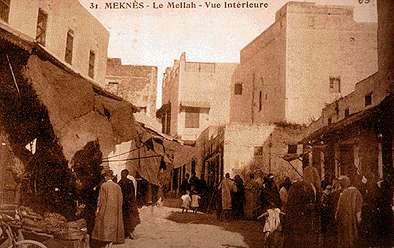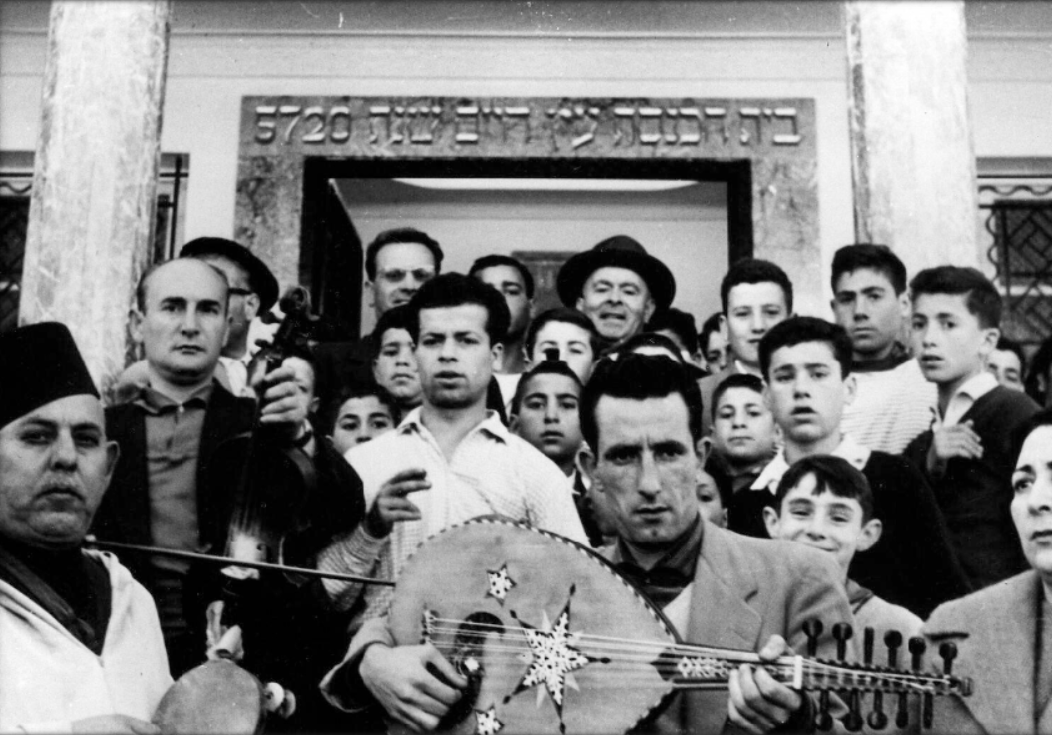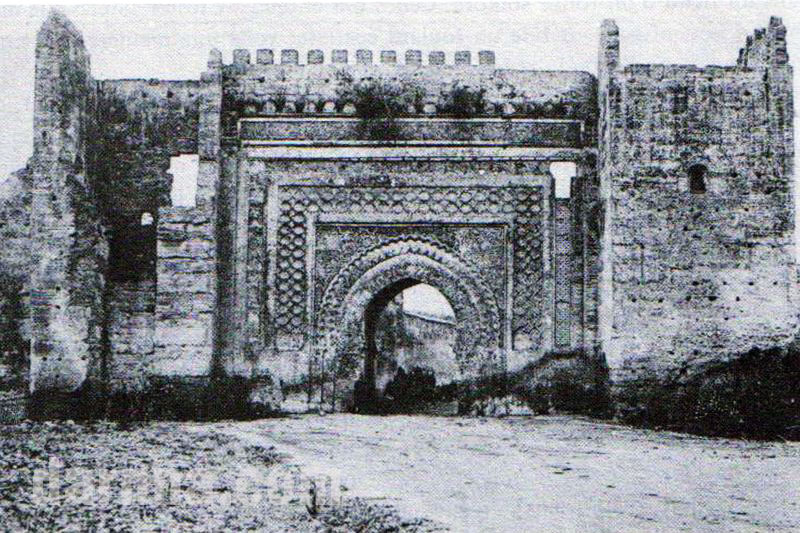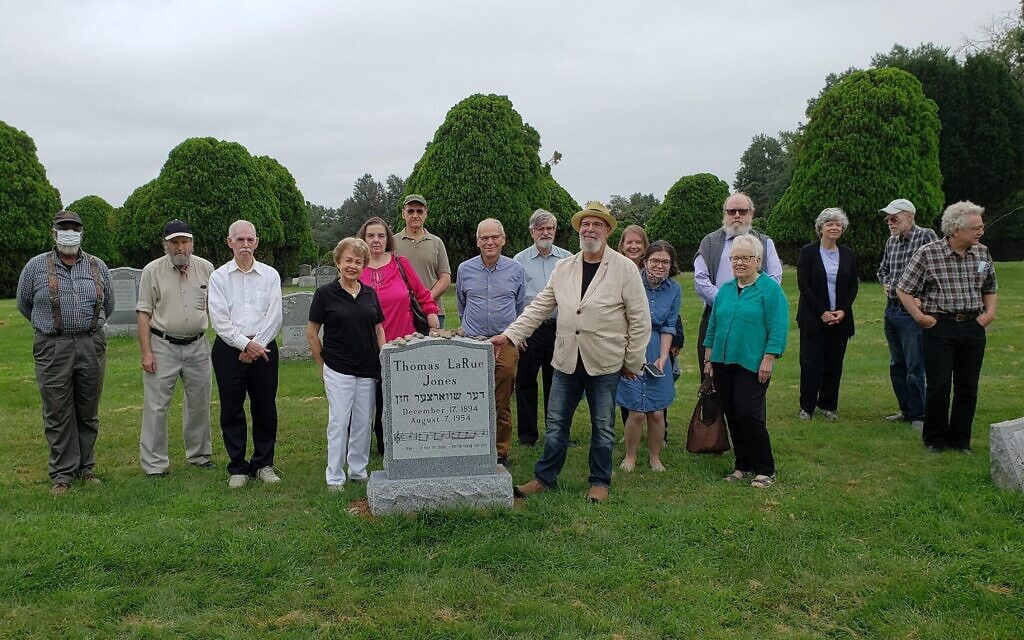September 10th, 2021, Shabbat is almost here!
And today, we will listen to a performance of Kol Nidre in a Sephardic version, by Rabbi Eliahou Elbaz.

Hello! How are you? I hope well. I am writing this edition partly at home, partly at Munich airport and finally in Cologne, where I have come to attend the Migrants Music Manifesto meeting. I still have another international trip before the end of this months. This used to be my usual life before the pandemic so I feel everything is, little by little, coming back to the normality.
A few editions ago (this one) I dedicated the MBS to the Jews in Afghanistan and talked about Zebulon Simentov, who was the last Jew in the country. The latest news say that he has left Afghanistan, together with a group of other 30 people with him. They travelled by road and got to leave the country. Their current location is secret, to avoid potential risks. You can read more about this news, here. I wonder if there will be any Jew in the future in Afghanistan ever. According to the article of CNN, Simentov’s neighbors told him they will keep the synagogue of Kabul maintained. Who knows what will happen…
Last week we talked about Kol Nidre, this legal formula that has become one of the most covered pieces of music in the history of Jewish culture. We listened to an Ashkenazi version. And as we have Yom Kippur still very recent – I hope it has been a fruitful and constructive day for you – we are now going to listen to a Sephardic version, from Morocco. I hope you’ll enjoy.
Then, please, spread the word.
|
About the cantor Rabbi Eliahou Elbaz
I have almost no information about this cantor. He is said to be a paytan in the description of the video. A paytan is an author of piyyutim. And he also said to be from Meknes, a city in Morocco, that is worth of some attention.
About Rabbi Eliahou Elbaz, I think he is currently alive and he is not very old. You can find several videos with him singing wonderfully. Like this one, or this one or this one.
About the Jews in Meknes

Meknes is a city in northern Morocco, one of the called “imperial” cities. It is about 130 kilometers east of Rabat.
This ? is a picture of the mellah (Jewish quarter) of Meknes. It is of public domain and I got it from here.
Encyclopedia.com has a huge article about the Jews in Meknes, of which I will make a summary and you if you are interested in learning more, I really reccomend you to visit their website:
- “Jews settled in the region of Meknès before the advent of Islam. A Hebrew inscription has been found and the remains of a synagogue were uncovered in the excavations of Volubilis, which is near Meknès.” Note that these ruins are dated from the time of the Romans. The phrase “Hebrew grave markers and the ruins of a synagogue were found at the Roman colony of Volubilis.” is findable in the website of the International Jewish Cemetery Project.
- Jews suffered at the bands of the Almohads in 1140 and in 1247 , during the wars of the Merinids, many Jews lost their lifes or were forcible converted to Islam. So maybe after that, many of them could use the Kol Nidre to return to Judaism.
- “The Mahrit synagogue, still exiting in Meknes, was build in the 13th century and rebuilt in 1646 after an earthquake, by the Toledanos (this means people from Toledo, that is concretely where I have my company settled on).” In 1540, another synagogue was built: Tobi.
- “The sharif Mulay Ismail (1672–1727), the real founder of the Alawid dynasty, moved his capital to Meknès and granted the Jews additional land for construction of buildings.” Some wealthy Jews built luxurious houses that produced admiration on the Christian emissaries.
- “From then until the 19th century the community of Meknès was one of the best developed and organized in Morocco.”
- “From 1790 and during the 19th century Meknès lost its importance as the capital and the Jewish community suffered pogroms frequently. There was an important change for the better in the situation of the Jews with the formal establishment of the French Protectorate in 1912.”
- “According to the 1947 census the Jewish community numbered 15,482 (about 3,000 others were not included in the census for various reasons). Most of the Jews of Meknès immigrated to Israel after the establishment of the state and both the old and the new mellahs are now inhabited for the most part by Muslims.”

- “In 1970 the Meknès community, although reduced, was one of the more vital of the Moroccan provincial communities. A considerable Jewish petite bourgeoisie lived there with communal life centering on the two main synagogues.”
- “More than three decades later, the Jewish community numbered no more than 120 Jews. In September 2003 radical Islamists, apparently belonging to the pro-al-Qa’ida association Salafiyya Jihādiyya, responsible for the suicide terrorist attacks in Casablanca several months earlier, stabbed to death 75-year-old Elie Afriat in Meknès. Since then members of the local community have lived in fear of further Islamist actions against them.”
According to the website of the International Jewish Cemetery Project, there is a new and an old Jewish cemetery in Meknes. And they say that “several saints are found in the two cemeteries, including Haim Messas, David Boussidan, and Raphael Berdugo.“
The Guardian made an article in September 15th of 2003 about the murder of Elie Afriat and some other attacks against Jews in Morocco and Tunisia around that time.
This ? was the door to the mellah in Meknes at the beginning of XX century. The picture is of public domain and I got it from here.

And what about nowadays?
At the end of 2020 the diplomatic relationship between the states of Morocco and of Israel was taken up, so it seems that the mobility between both countries will be facilitated. You can learn more in this article from the Moroccan newspaper Le360. Not mentioned in this article, but the fact is that this was promoted by the USA, as Donald Trump accepted the Moroccan map, that includes the disputed Western Sahara as part of Morocco. This provoked a reaction of rejection from the Polisario Front, but not only. Algeria and Russia did not take kindly to it either. You can learn more in this article.
Time will tell how this affects the Jewish presence in Morocco.
About our Kol Nidre for today
| Share this with a friend, right from here |

 AND BEFORE…
AND BEFORE…